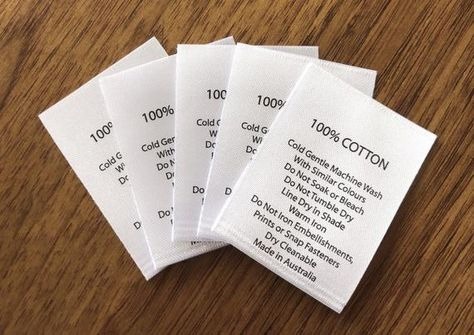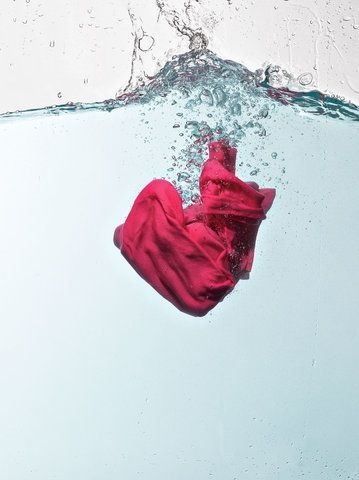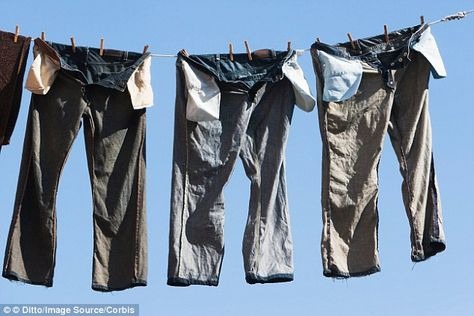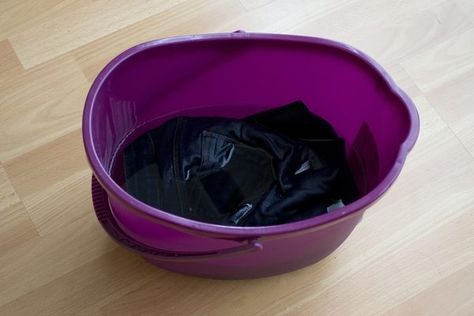
Black and dark clothes are popular choices for their versatility and timeless look. However, keeping these garments looking their best can be a challenge, but with the right techniques, it’s possible to maintain their rich color and quality. From fading to shrinkage and dye transfer, various factors can affect the appearance of your dark garments. In this article, we’ll explore the best ways to wash black and dark clothes, including the use of cold water, the proper detergent, and the right washing cycle. We’ll also discuss the common mistakes to avoid when washing dark clothes, such as using too much detergent or drying them in direct sunlight. By following these tips, you can keep your black and dark clothes looking their best, wash after wash.
Table of Contents
Why Do Black And Dark-colored Clothes Require Special Washing Techniques?
Black and dark-colored clothes require special washing techniques because the dye used to color these garments can be prone to fading, bleeding, or transfer. In addition, the fabric can shrink or lose its shape if not washed properly. The high contrast of black and dark clothing can also make any damage or discoloration more noticeable.

To prevent these issues, it’s important to use cold water, a gentle cycle, and a specialized detergent designed for dark clothes. It’s also important to avoid washing black and dark clothing with lighter-colored items, as the dye may transfer, and to avoid exposing the clothing to direct sunlight or high heat when drying. By following these techniques, you can keep your black and dark clothes looking their best for longer.
How To Prevent Black And Clothes From Fading While Washing – 6 Useful Tips
Black clothing will inevitably fade to some extent, and as the clothing is used, the fading will get worse. In light of this, you can take precautions to help prevent your black clothing from fading so quickly. The most crucial one is washing them correctly.
Before throwing a black item of clothing in the laundry, you should first ask, “Does it actually need to be washed?” Many items, particularly jeans, end up in the hamper more out of habit than necessity. Consider wearing it again if you only wore it briefly or if you didn’t use it in any physically demanding activities. Before putting it in the washer, it might be totally acceptable to wear it once more. The most effective technique to prevent black clothing from fading quickly will be to reduce the number of washing cycles.
Once you have established that your black clothing is actually due for washing, here are some helpful tips that can help you keep them at their blackest after washing them:
Read the instruction/care label on the clothes
Reading the instruction label before washing black clothes is crucial for preserving their appearance and longevity. Neglecting to do so can lead to a range of problems that can negatively impact the look and feel of the garment.

One of the main reasons to read the label is to prevent fading. Black clothes can be especially susceptible to fading, as the dye used to achieve the deep, rich color can be more delicate than other hues. If the instructions indicate that the garment should be washed in cold water, this is to avoid exposing the dye to the heat and agitation of a hot wash cycle, which can cause the color to bleed or fade.
Another reason to read the label is to prevent shrinkage. Different materials and fabrics can react differently to heat and agitation during washing and drying, and some black clothes may be made from materials that are prone to shrinking. The care instructions on the label can provide guidance on the best washing and drying methods to prevent shrinkage.
Additionally, reading the label can also prevent damage to the garment. Some black clothes may have delicate embellishments, such as lace, sequins, or studs, that can be easily damaged during washing or drying. The care instructions may indicate that the garment should be hand washed or placed in a laundry bag to protect these delicate embellishments.
Wash With Cold Water
For black clothing, it is important to wash them in cold water to prevent fading. There are several reasons why cold water is the best option for washing black clothes. First and foremost, hot water can cause colors to fade and bleed. This is because hot water opens up the fibers in the fabric, allowing dyes to escape. This is particularly true for black clothes as black and dark-colored dyes are often more susceptible to fading than other colors. Cold water, on the other hand, keeps the fibers of the fabric tightly closed, reducing the risk of color loss.

Another factor to consider is the detergents and other laundry products used in the washing process. Some detergents contain ingredients that can break down dyes, leading to fading. When using cold water, these ingredients are less effective, thus reducing the risk of fading. Furthermore, some laundry products contain color-brightening agents that can actually enhance the fading process. Using cold water and color-safe laundry products can help protect black clothes from fading.
Additionally, cold water is more gentle on clothing fibers than hot water. Hot water can cause shrinkage, stretching, and even damage to the fabric. This can make clothes look worn and faded, even if the color has not actually faded. Cold water, on the other hand, is gentler on fibers, keeping clothes looking their best for longer.
Choose the right detergent
Choosing the right detergent is crucial to preserve the color and keep the fabric looking new. There are many options available in the market, and it can be difficult to choose the right one. Here are some things you should consider when choosing a detergent for washing your black and dark-colored clothes:

- Color protection:Look for a detergent that specifically states it will protect the color of black clothes. These detergents usually contain special ingredients to keep the color from fading and bleeding.
- Gentle formula:Black clothes are usually made of delicate fabric and can easily be damaged. A gentle detergent that is designed for delicate fabrics is a good choice.
- Avoid brighteners:Detergents that contain brighteners can make black clothes appear faded and dull. Instead, opt for a detergent that is free of brighteners and whiteners.
- A detergent formulated for cold water use:Choose a detergent that is formulated for use in cold water to help protect your black clothes.
- Laundry load:Consider the size of your laundry load when choosing a detergent. A high-quality, concentrated detergent will provide better results than a low-quality, diluted detergent.
By considering these factors, you can choose the right detergent for washing black clothes and keep them looking their best. As mentioned previously, it is important to always follow the care label on the clothing and the instructions on the detergent packaging to ensure the best results.
Turn the clothes inside out
When it comes to washing black clothes, it is recommended to turn them inside out before putting them in the wash. This can help to preserve the color and vibrancy of the fabric. The primary reason for turning black clothes inside out before washing is to avoid color fading. As mentioned previously, black dye is one of the most prone to fading and is susceptible to losing its intensity and vibrancy with each wash. By turning the clothes inside out, you can minimize the amount of friction that the fabric experiences during the wash, which can help to prevent the dye from fading. This will help your black clothes retain their color for a longer period, ensuring that you look sharp and polished every time you wear them.

Another reason to turn your black clothes inside out before washing is to reduce the risk of snagging. Snagging can occur when the fabric gets caught on zippers, buttons, or other objects in the wash. This can cause small holes to form in the fabric, ruining its appearance. By turning the clothes inside out, you can reduce the risk of snagging, as the buttons and zippers will be facing inward, away from the other clothes in the wash.
Lastly, turning your black clothes inside out before washing can also help to reduce the risk of pilling. Pilling occurs when small balls of fabric form on the surface of the material, causing it to look worn and faded. By turning your clothes inside out, you can reduce the amount of friction that the fabric experiences, which can help to prevent pilling from occurring.
Avoid drying in direct sunlight or over high heat
Drying clothes in direct sunlight or over high heat can be harmful to dark-colored clothes, particularly black clothes. The color black is prone to fading and the intense heat from direct sunlight or high heat can cause the color to fade or even bleed. Additionally, high heat can shrink or damage the fibers in the fabric, causing it to lose its shape or become misshapen.

Sunlight can also cause the fabric to become brittle and stiff, making it difficult to wear or even damaging the fabric beyond repair. In addition, exposing black clothes to direct sunlight can cause them to yellow or develop a dull appearance, as the intense heat can cause the fabric to break down and discolor.
Furthermore, drying clothes over high heat or in direct sunlight can also be a fire hazard. With the right conditions, high heat and direct sunlight can cause flammable materials to ignite, leading to a fire that could cause significant damage and harm to you and others.
It is recommended to avoid exposing black clothes to direct sunlight and high heat. Instead, opt for alternative drying methods such as air drying, machine drying on low heat, or line drying in a shaded area. These methods are not only more gentle on the fabric, but also help to protect the color and integrity of your black clothing.
Use the right wash settings
Washing black clothes separately is another crucial step in preventing them from fading. The color black is known to bleed, meaning it can transfer color to other clothes in the wash. This can lead to fading, which is the gradual loss of color intensity over time. When you wash black clothes with other colors, the dye can transfer, causing the black color to become dull and fade.

Another factor to consider is the use of detergents and other laundry additives. Many detergents contain brightening agents that can cause black clothes to fade. These brightening agents are designed to enhance the brightness of white clothes but can have a detrimental effect on dark colors like black. Washing black clothes separately minimizes the risk of exposure to these brightening agents, and reduces the likelihood of fading.
In addition, washing black clothes separately can also prevent the clothes from becoming damaged in the wash. Some clothes may have delicate fabrics that can easily become snagged or stretched during the wash. Washing black clothes separately ensures that they are not subjected to abrasion from other clothes and reduces the risk of damage.
Conclusion
Washing black and dark-colored clothes require a little more care and attention than lighter-colored clothes. To maintain the vibrancy and prevent fading, it is recommended to wash these clothes separately from lighter colors, using a gentle detergent and cold water. Avoid using fabric softeners and bleach, as these can cause the colors to fade. When drying, it is best to air-dry the clothes or use a low-heat setting on the dryer. By following these simple tips, you can keep your black and dark-colored clothes looking their best for longer.